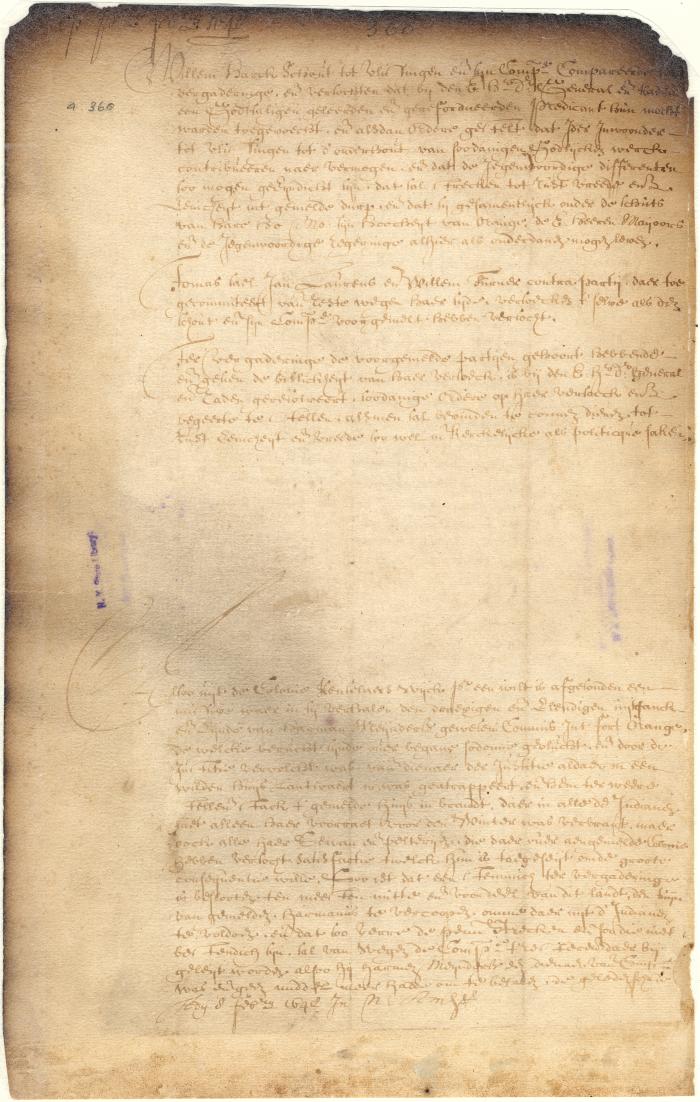[1]On the first of February 1648
Willem Harck, schout of Vlissingen,[2] and his associates appeared in council and requested that the honorable director general and council would provide them with a pious, learned and Reformed minister and then order that each inhabitant of Vlissingen must contribute to the support of such godly work according to his ability, and that thus an end may be put to the present differences, which will tend to promote quietness, peace and harmony in the said village and enable them to live together as subjects under the protection of their High Mightinesses, his Highness of Orange, the honorable directors and the present administration here.
Tomas Sael, Jan Laurens and Willem Turner, of the opposite party, delegated thereto by theremaining persons on their side, request the same as the schout and his associates have asked.
The aforesaid parties having been heard in council and the justice of their request being acknowledged, it is resolved by the honorable director and council to issue such order on their application and request as in their opinion may serve to promote peace, harmony and tranquility both in ecclesiastical and political affairs.
Whereas a letter has been sent from the colony of Rensselaerswyck by an Indian, wherein they relate the sad and miserable death and end of Harman Meyndersz, late commissary of Fort Orange, who, being reputed to have committed sodomy, absconded and, being pursued by justice, was caught by an officer of the court[3] there in an Indian house in the interior of the country; and [ whereas ] in defending himself he set said house on fire, whereby not only all the provisions of the Indians for the winter, but also all their seawan and peltries were burned, for which they demanded satisfaction of said colony, which was granted to them on account of the serious consequences;
Therefore, it is unanimously resolved in council to be for the best interest and advantage of this country to sell the garden of said Harmanus, in order to satisfy the Indians from the proceeds as far as the money permits and, if this be not sufficient, to make up the balance on behalf of the Company, inasmuch as he, Harmen Meyndersz, was a servant of the Company and had no other means to pay for the damage. This 8th of February 1648, in New Amsterdam.
Rights: This translation is provided for education and research purposes, courtesy of the New York State Library Manuscripts and Special Collections, Mutual Cultural Heritage Project. Rights may be reserved. Responsibility for securing permissions to distribute, publish, reproduce or other use rest with the user. For additional information see our Copyright and Use Statement Source: New York State Archives. New York (Colony). Council. Dutch colonial council minutes, 1638-1665. Series A1809-78. Volume 4, page 360.


